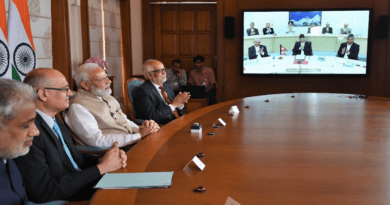Institutionalization of Xi’s Cultural Thought Impend Further Restrictions, Especially in Occupied Tibet

By Tsering Choephel
DHARAMSALA, 21 Oct: The Chinese Communist Party (CCP) unveiled a Research Centre of ‘Xi Jinping Thought on Culture’ at a National Conference on Propaganda, Ideology, and Culture held in Beijing earlier this month, with Xi himself presiding over the conference. The outcome of the conference has significant implications, dictating China’s long-term strategies for both domestic and international propaganda, as reported by bitterwinter.org.
The conference, the third in the last ten years, was strategically held on the eve of the third Belt and Road Forum in Beijing. China Media Group (CMG), which operates mega state-owned China Central Television, China National Radio, and China Radio International, hailed the institutionalisation of ‘Xi Jinping Thought on Culture’ as “the most important achievement of the conference,” according to a South China Morning Post report.
CMG head Shen Hailing urged the attendees, which comprised senior officials from key party and state agencies, regional administrations, and the country’s military and security apparatus, to pursue the new propaganda implant of Xi’s thought “wholeheartedly” and have it “deeply rooted in the hearts of the Chinese people.”
Furthermore, Shen pledged to strengthen CMG’s international communication capabilities to “win the international public opinion and cognitive wars” for China.
Deng Yuwen, a well-known CCP ideologue, described the new institution as the CCP’s efforts to “tie Marxism to Chinese cultural roots so that the party’s ideology can gain better acceptance among the Chinese people.” On the other hand, it is “to fend off the western countries’ values and cut off their influence on the Chinese people while increasing China’s voice globally,” he added.
In other words, ‘Xi Jinping Thought on Culture’ is another tentacles of CCP with aims to further tighten its control over the party and citizens domestically and supersede the international rule of law, freedom, and justice with their own skewed definition.
Within current China, the execution of such CCP doctrines, like the latest ‘Xi’s thought on Culture,’ becomes particularly problematic, dangerous, and persecutive in the occupied region of Tibet, as Tibetan’s overall religious, cultural, and linguistic heritage and practices have little to nothing in common with Chinese.
“Xi Jinping Thought on Culture” is the latest addition to form what the report called the sixth pillar of his political doctrine alongside Xi’s Thought on Economy, Diplomacy, Military, Environment, and Legal affairs. Counting each research centre on the study of Xi-thought, it comes close to two dozen institutions: a stack that rivals or matches that of Mao Zedong’s cultist autocratic rule.





